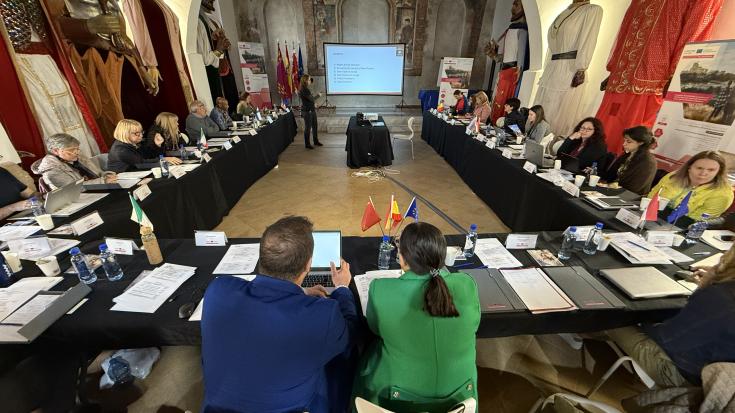SlowDown gathers partners in Spain for sustainable tourism
From November 19 to 21, the picturesque town of Caravaca de la Cruz, in Spain’s Region of Murcia, hosted the second Interregional Thematic Workshop (ITW2) of the SlowDown project. This initiative, supported by the Interreg Europe programme and co-funded by the European Union, brought together representatives from nine European countries—Hungary, Slovakia, Italy, Finland, Latvia, Ireland, France, Romania, and Spain—to advance strategies for sustainable tourism.
The workshop underscored the importance of collaboration in fostering slow and meaningful tourism, combining theoretical insights with hands-on experiences. Over three days, participants delved into strategic planning, explored innovative methodologies, and immersed themselves in the cultural and natural heritage of the host region.
At the heart of the SlowDown project is a commitment to fostering collaboration across regions to develop tourism strategies that respect local environments and cultures. ITW2 exemplified this mission, beginning with a comprehensive analysis of slow tourism trends in Europe. Key discussions during the workshop focused on stakeholder engagement, the alignment of local and regional tourism policies, and the importance of a roadmap to guide implementation efforts.
A particularly engaging element of the workshop was the knowledge exchange session, where representatives from partner regions presented their approaches to sustainable tourism. This session also incorporated speed-dating rounds, providing an innovative platform for participants to exchange ideas and share best practices in an interactive setting.
The workshop wasn’t limited to discussions. Participants explored the region’s commitment to sustainability through a series of study visits. These included a tour of the Fuentes del Marqués, known for its pristine natural landscapes, and visits to the Castle and Basilica of Caravaca and the Museum of the Wine Horses, offering a deeper understanding of the region’s cultural and historical significance.
Practical demonstrations of sustainable practices were also a highlight, such as a visit to the Hotel Gastronómico 'Casa Borrego', where participants learned about sustainable accommodation managemen. Similarly, a tour of the bioclimatic flats at the CEAMA Centre for Agroecology and Environment in Bullas showcased innovative approaches to eco-tourism.
The third day of ITW2 centred on governance and financial management. The 2nd Interregional Steering Group meeting provided an opportunity for partners to align on thematic tasks, refine their approach to policy improvements, and share lessons learned in reporting and financial oversight. These discussions emphasized the need for clear, actionable strategies to ensure the success and scalability of slow tourism initiatives.
The SlowDown project highlights the critical role of aligning sustainability goals with tourism strategies to create lasting impact. By prioritizing stakeholder engagement, cultural authenticity, and environmental responsibility, the project seeks to position slow tourism as a viable alternative to mass tourism.
The outcomes of ITW2 reaffirmed the potential of slow tourism to drive meaningful economic and social change while preserving the cultural and natural wealth of European regions. As partners look ahead to future workshops and initiatives, the insights gained in Caravaca de la Cruz will serve as a cornerstone for shaping sustainable tourism policies across Europe.
